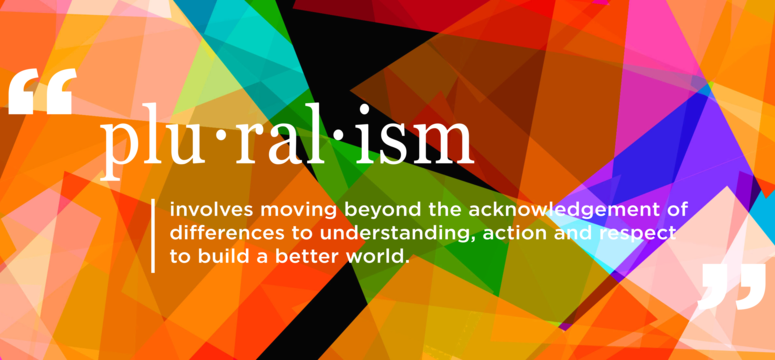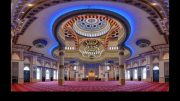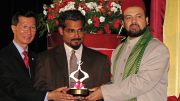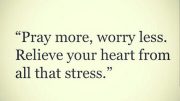Introduction
The world today is torn apart by tensions and conflicts of one kind or another. Despite rising affluence and technological advancements, the human population has not been able to rise above the backwardness and barbarism of the past. We are still witnessing today, violence inflicted by one nation against another, one ethnic group against another, and one religious group against another. Within our own lifetime we have heard of ethnic cleansing, wars and weapons of mass destruction, genocide and refugees. All such problems exist because people have not been able to come to terms with their differences.
Trinidad and Tobago has been spared many of the atrocities found in other parts of the world. But although we are a relatively peaceful, easy-going society, there still exists hidden (and sometimes overt) tensions and conflicts between different ethnic or religious groups. Such tendencies have been documented in works such as The Jhandi and the Cross by Professor Selwyn Ryan (1999).
Our history shows that the meeting of cultures in Caribbean society has sometimes been cordial, but often confrontational, reflecting the patterns of dominance and subordination that characterized the various groups that came to the Caribbean. The playing field has never been level. As a general rule, non-European groups have had to struggle for recognition and respect for their rights and privileges.
But there was a turning point in our history when it was declared that the nation was “forged from the love of liberty” and that in Trinidad and Tobago “every creed and race finds an equal place”. The National Anthem has been sung for forty years almost on a daily basis at schools and important functions. But repeating its beautiful phrases connoting egalitarianism and mutual respect was not sufficient to remove the centuries of colonial domination.
Deliberate attempts were made to unify the society by integrating its diverse constituent elements into an amalgam or melting pot of races, religions and ethnic groups into a homogeneous national culture. This was done mainly through the government’s educational policy around the time of independence in 1962.These and other attempts to achieve national unity have only been partially successful.
Trinidad and Tobago society today continues to be divided along the lines of ethnicity, social class and religion. Some groups see themselves as marginalised and people on a daily basis claim that they are victims of prejudice and discrimination because of their ethnic background or religious affiliation. While such claims are often motivated by reactions to the political atmosphere, conflicts and tensions are a reality in our society.
Despite their efforts, successive political parties have failed to achieve national unity. The question facing us today is “Can the faith-based bodies succeed where the politicians have failed? Is religion a solution or is it a problem in itself? To what extent are faith-based bodies allowed to influence policy decisions. The involvement of religious groups in national affairs should extend beyond the token recognition presently given. Thus far, all major events are opened by an inter-faith service, where the Name of God is invoked. Following this, we proceed to conduct our affairs forgetting that God exists. While we do acknowledge the existence of various religious bodies, within our pluralist social framework, the society conducts its affairs as if God does not exist. Religion cannot unite people in a secularized, materialistic and to some extent atheistic society, where economic and political activity are motivated by short-term parochial interests. Our relationship with each other is based on secular and utilitarian principles, rather than as brothers and sisters in humanity. We emphasize our differences, rather than our similarities.
Islam and Muslims
The average person is often unaware of the divergent views and different interpretations of Islam. As such, politicians and the media tend to generalize about all Muslims in a stereotypical manner. Thus, Islam should not be perceived and analyzed in a monolithic manner as currently done. of Islam, but open to pluralistic interpretations with its different schools of jurisprudence, its different theological interpretations and different philosophical traditions. We therefore hear about Sunnis, traditionalists, Hanafis, sufis, modernists, neo-revivalists and several other sub groups within the worldwide Muslim community. Even the group classified as fundamentalists comprises person persons of different viewpoints.
Though Muslims tend to differ in their interpretation and implementation of Islamic scripture, they all agree on the basic beliefs: the Oneness of God, the Prophets of God, the Angels, the Last Day and life hereafter and the revealed books. Muslims also agree on the five pillars of Islam: Iman (faith), Prayer, Zakat (Poor Tax), Fasting and Pilgrimage.
Islam and Pluralism
 The message of Islam (meaning submission to God) did not begin with Muhammad. Muslims accept all the Prophets and Messengers of God beginning with Adam and ending with Muhammad. Aslo, Muslim are required to believe in and accept the teaching of the previous Prophets and Messengers. The following verse of the Quran illustrates that the message of Muhammad came as a confirmation of the previous scriptures.
The message of Islam (meaning submission to God) did not begin with Muhammad. Muslims accept all the Prophets and Messengers of God beginning with Adam and ending with Muhammad. Aslo, Muslim are required to believe in and accept the teaching of the previous Prophets and Messengers. The following verse of the Quran illustrates that the message of Muhammad came as a confirmation of the previous scriptures.
To you We sent the Scripture in truth, confirming the scripture that came before it, and guarding it in safety: so judge between them by what God has revealed, and follow not their vain desires, diverging from the Truth that hath come to you. To each among you have we prescribed a law and an open way. If God had so willed, He would have made you a single people, but (His plan is) to test you in what He has given you: so strive as in a race in all virtues. The goal of you all is to God; it is He that will show you the truth of the matters in which you dispute. Quran 5.48
The Quran also addresses the common origins of the human race, the different races and sexes and the need for people to be God-conscious.
O people! be careful of your duty to your Lord, Who created you from a single being and created its mate of the same (kind) and spread from these two, many men and women; and be careful of (your duty to) God, by Whom you demand one of another (your rights), and (to) the ties of relationship; surely God ever watches over you. Quran 4:1
In these verses, we are reminded that the purpose of diversity is not for jealousy, envy or hatred, but for cooperation, interdependence and harmony. Diversity is described as one of the signs of God’s infinite wisdom.
O humanity! We created you from a single (pair) of a male and a female, and made you into nations and tribes, that you may know each other (not that you may despise (each other). Verily the most honoured of you in the sight of God is (he who is) the most righteous of you. And God has full knowledge and is well acquainted (with all things). Quran 49:13
And among His Signs is the creation of the heavens and the earth, and the variations in your languages and your colours: verily in that are Signs for those who know. Quran 30:22
Mankind was one community, and God sent (unto them) prophets as bearers of good tidings and as warners, and revealed therewith the Scripture with the truth that it might judge between mankind concerning that wherein they differed. And only those unto whom (the Scripture) was given differed concerning it, after clear proofs had come unto them, through hatred one of another. And God by His Will guided those who believe unto the truth of that concerning which they differed. God guides whom He will unto a straight path. Quran 2:213
The Quran dismisses empty formalism and ritualism, indicating that true piety is service to God and to fellow human beings. It indicates that true religion is based on faith, worship, patience, obedience and service to humanity.
It is not righteousness that you turn your faces Towards east or West; but it is righteousness- to believe in God and the Last Day, and the Angels, and the Book, and the Messengers; to spend of your substance, out of love for Him, for your kin, for orphans, for the needy, for the wayfarer, for those who ask, and for the ransom of slaves; to be steadfast in prayer, and practice regular charity; to fulfil the contracts which ye have made; and to be firm and patient, in pain (or suffering) and adversity, and throughout all periods of panic. Such are the people of truth, the God-fearing. Quran 2:177
We now turn to the issue of religious pluralism. The verse quoted below illustrates the respect for different places of worship suggested by the Quran. Please take note that mosques are mentioned after the other places of worship. This verse is a clear indication for the respect for diversity advocated by Islamic scriptures. The emphasis here is on God’s great name and His sovereignty rather than on human time and space bound cultural differences.
(They are) those who have been expelled from their homes in defiance of right,- (for no cause) except that they say, “our Lord is God”. Did not God check one set of people by means of another, there would surely have been pulled down monasteries, churches, synagogues, and mosques, in which the name of God is commemorated in abundant measure. God will certainly aid those who aid his (cause);- for verily God is full of Strength, Exalted in Might, (able to enforce His Will). Quran 22:40
On the question of freedom of worship, the Quran says:
Let there be no compulsion in religion: Truth stands out clear from Error: whoever rejects evil and believes in God has grasped the most trustworthy handhold, that never breaks. And hears and knows all things. Quran 2:256
It is also important to note also that the biggest festival in Islam the Eid ul Adha (the festival of Sacrifice) and the Hajj or Pilrimage are both in commemoration of the trials faces by the Prophet Abraham and his family. As you are aware, Abraham, who is accepted as a leader by Jew and Christians, has been described in the Quran as a role model, and a “friend of God”. This is a clear indication that Islam did not begin with Muhammad ﷺ.
One True Path in a Pluralistic Framework
Based on the foregoing, it is clear that Islam grants the right of religious tolerance. We as followers of various faiths all believe that our way represents the Truth. Some of us (mainly the Christians and Muslims), even invite other to follow our religion. Even propogating our respective faiths is a God-given right. A problem arises when we react negatively to people who choose not to accept our way. Do we use force? Do we fire them from their jobs? Do we insult them or hurt their feelings? All these have occurred in Trinidad and Tobago. According to the verse quoted above, there should be no coercion in matters of religion. Therefore in a multi-religious social setting, there should be mutual understanding and continuous dialogue and collaboration among the different groups for the greater good of the society. Religion should be a source of peace and solace for the society rather than a source of tension and conflict.
While we advocate a relativistic rather than an ethnocentric view , we should be aware of extending religious relativism too far whereby it includes moral relativism taken to its extreme. Should almost any type of behaviour be justified in the name of religion? What if some try to justify political dictatorship, human sacrifice, suicide bombing or even promiscuous sexual behaviour as acceptable within the teachings of a particular. In my view most of the undesirable patterns of behaviour are not considered acceptable by most faiths. So we do have some common ground.
A Proposal
Firstly, there should be a genuine desire on the part of the different religious groups to work together with others for the good of the society. If this desire does not exist, then we are all engaged in an exercise in futility here today. While we all believe that our way is the truth, we should recognize the rights of other faiths to exist. We live in a society where many problems obstruct the comfort, growth and positive development of citizens. These problems do not discriminate between the members of different ethnic groups or religions. These include drug abuse, crime, domestic violence, poverty or social conflict. Couldn’t the faith-based bodies agree on a common strategy to tackle these problems in the society.
The present problems facing the society necessitate greater dialogue among the various communities to discuss matters of common interest. Let us focus less on our differences and focus more on God. Let us focus on God as a unifying concept in our lives and by extension into the affairs of the society. Different religions are more concerned with what we call God and with many of the cultural traditions found in various religions, while at the same time forgetting about God. What is more important, in view is how we conceptualize God. Let us introduce God to the society as an idea or a concept one which can unify society and tickle our consciences to do good all the time. Let all citizens recognize the existence of a Supreme Being who controls the affairs of the Universe, who cares about His creation. Our relationship with God will then help us to feel His presence in all our affairs so that we would feel accountable to a Supreme Being. Furthermore, it will soften our hearts to feel concerned about the poor, weak, homeless and the distressed. Also, it will help persons to respect others of all races and nationalities since they were all created by God. It would even improve how we treat the resources of the earth since they were placed here by God to be managed properly. Rather than always trying to judge others as we all love to do, let us always do good and let God be the Judge. This in my view is the first step towards true national unity.
March 18, 2003
Nasser Mustapha
Department of Behavioural Sciences, UWI.





Be the first to comment on "RELIGIOUS PLURALISM AND THE CHALLENGES OF INTER-FAITH DIALOGUE: THE MUSLIM VIEWPOINT"